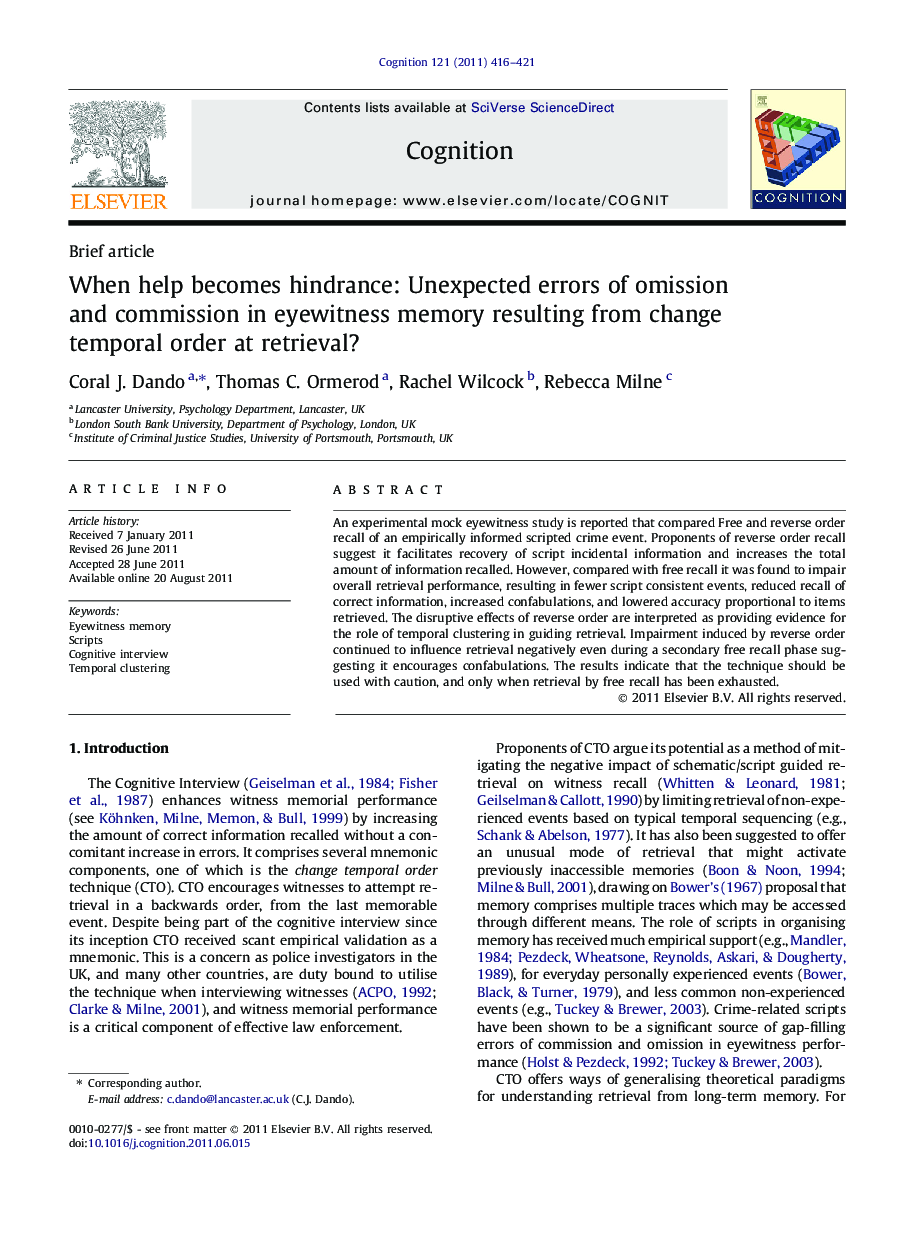| Article ID | Journal | Published Year | Pages | File Type |
|---|---|---|---|---|
| 926548 | Cognition | 2011 | 6 Pages |
An experimental mock eyewitness study is reported that compared Free and reverse order recall of an empirically informed scripted crime event. Proponents of reverse order recall suggest it facilitates recovery of script incidental information and increases the total amount of information recalled. However, compared with free recall it was found to impair overall retrieval performance, resulting in fewer script consistent events, reduced recall of correct information, increased confabulations, and lowered accuracy proportional to items retrieved. The disruptive effects of reverse order are interpreted as providing evidence for the role of temporal clustering in guiding retrieval. Impairment induced by reverse order continued to influence retrieval negatively even during a secondary free recall phase suggesting it encourages confabulations. The results indicate that the technique should be used with caution, and only when retrieval by free recall has been exhausted.
► Eyewitness retrieval of a scripted mock crime event. ► Change Temporal Order (CTO) and a free recall (FR) techniques are examined. ► Versus FR, CTO reduced correct recall and accuracy, and increased confabulations. ► The negative effect of CTO carried over to subsequent retrieval attempts. ► Disrupting temporal clustering hinders eyewitness performance.
